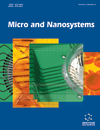
Full text loading...
Turmeric (Curcuma longa) contains a polyphenol called curcumin, which has a variety of medicinal uses, including anti-inflammatory, antioxidant, and anticancer effects. However, due to its rapid disintegration, low solubility, and poor absorption, its clinical application is restricted. To overcome these challenges, researchers are exploring the use of various kind of curcumin nanoparticles, which enhance its solubility, stability, and bioavailability to deliver its benefits more efficiently. Integrating curcumin into composite nanoparticles has emerged as a prominent strategy to overcome the limitations of curcumin’s bioavailability. This review aims to overview various curcumin nanoparticle forms that have been synthesized to enhance curcumin's permeability, solubility, and oral bioavailability. Specifically, we explored polymeric nanoparticles, lipid nanoparticles, non-polymeric nanoparticles, and nanocrystals as carriers to enhance the biopharmaceutical properties of curcumin. The collected data from the literature indicated significant improvements in solubility and permeability, with lipid-based and polymeric nanoparticles showing the most promising results in enhancing the oral bioavailability of curcumin. It can be suggested that nano encapsulation not only protects curcumin from rapid degradation but also facilitates its efficient transport and absorption at target sites.

Article metrics loading...

Full text loading...
References


Data & Media loading...

